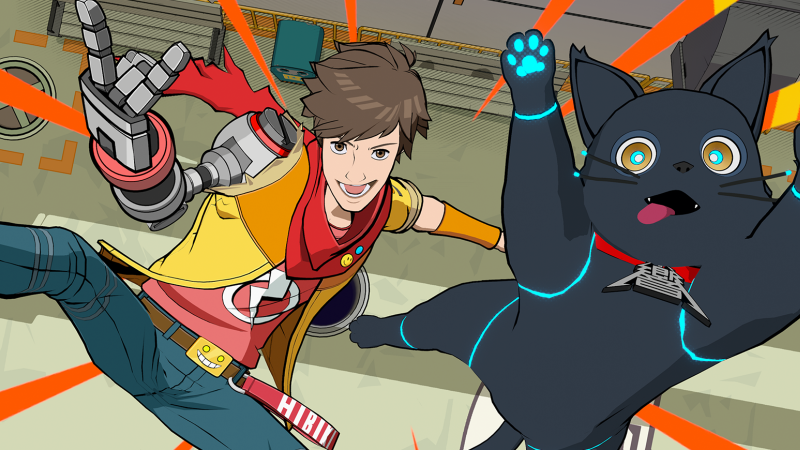
Reviewed on: PC
Platform: Xbox Series X/S, PC
Publisher: Bethesda Softworks
Developer: Tango Gameworks
Release:
Rating: Teen
Hi-Fi Rush occupies an increasingly rare space in the big-budget video game industry: that of colorful, goofy, and light-hearted titles. For its 10 or 11-hour runtime, it has more in common with a Saturday morning cartoon than a thin attempt at gritty, prestige television, like most triple-A games these days, and that's easily its biggest strength. That its gameplay and combat are a unique melding of rhythm and stylish action games is merely the cherry on top.
Main character Chai has big dreams of being a rockstar. To achieve this dream, he signs up for Project Armstrong, a program run by the megalithic tech organization Vandelay Technologies. Ideally, this would have replaced Chai's disabled arm, but he has to fight his way out of the facility when he's labeled a defect. While doing so, he meets Peppermint, who's working to take down Vandelay. The two team up, bringing various people disgruntled with the tech behemoth aboard to form a ragtag group of misfits hellbent on ending Vandelay's monopoly.
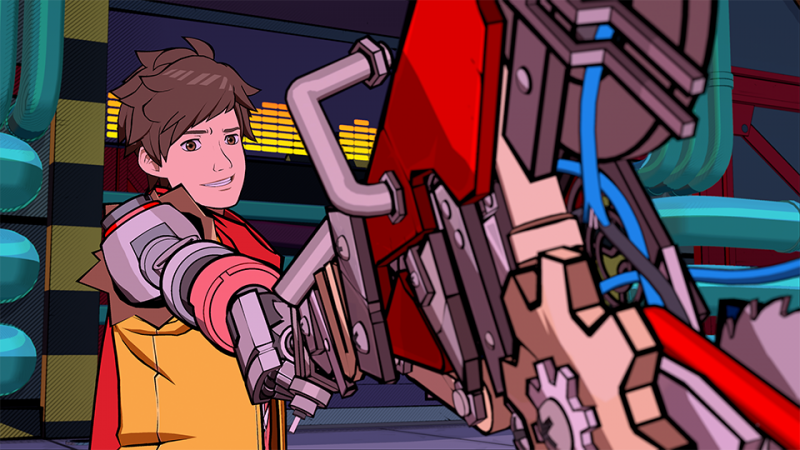
Each core cast member is charming and funny in their own right, and I consistently enjoyed the banter, arguing, and various dynamics. Hi-Fi Rush is a surprisingly well-written game that manages to be intentionally corny and, more often than not, pulls it off in a non-grating way. In fact, I was surprised that the story was my favorite part of the game, and I genuinely enjoyed every character and how they integrated into the wider group. By the end, Chai and his merry band work together in harmony, and the story and gameplay match this in satisfying ways.
At the heart of Hi-Fi Rush is a story about the ills of big tech – and, more specifically, the game industry. It's not the most radical corporate protest in the world. But levels that poke fun at the lopsided budgets between marketing and development teams and tyrannical managers who seize control over a product against quality or worker safety certainly get their points across. Tango Gameworks is owned by mega-publisher Bethesda Softworks. Maybe something to keep in mind.
All of this plays out across Vandelay's massive corporate campus. The bright cel-shaded world is constantly in motion, even when you're standing still. Everything in Hi-Fi Rush moves to the beat of the game's soundtrack – Chai's run animation, the rotation of industrial gears, cutscenes, all of it to the game's internal metronome. It was always fun seeing how the game integrated Chai's love of music into the world, even in small touches, such as how a swing of your weapon belts guitar squeals in the same key as any level's soundtrack.
Combat is where Hi-Fi Rush's rhythm backbone really comes into play. On its surface, the game plays like any number of stylish action games: you hack, slash, and build combos and high scores. You know the drill if you've played Bayonetta or Devil May Cry. The unique twist, however, is that doing so on the beat with the game's songs nets you better scores and more effective attacks.
Fighting in time to the rhythm, landing heavy hits with the snare of a drum, and seeing your flashy animations perfectly timed to any number of Hi-Fi Rush's songs feels as good as it looks; there's a literal weight as you slam buttons in time. All of the surrounding aspects of gameplay lean into the same gimmick – puzzles, platforming, the whole nine yards. While it has an original score, the licensed soundtrack does a lot of the game's heavy lifting – especially during tense and dramatic moments. Aside from one The Black Keys song, all the additions from Fiona Apple, Nine Inch Nails, and especially The Joy Formidable are fantastic inclusions.
The combat is so good that the early portions of the game's noticeable lack thereof suffer compared to the back half of Hi-Fi Rush. It has a slow start, and for the first few levels, I found myself desperately trying to get to the next enemy encounter. Luckily, after a few hours, Hi-Fi Rush really hits its stride. By the time credits roll, it's crescendoing into a mess of colors and riffs completely over-the-top and alive in the spectacle.

Hi-Fi Rush doesn't require you to fight on the beat; animations will still land in time even if you're off time, allowing for that same visual impact as a player in perfect sync. Additionally, you can display a visual metronome on the screen to help you keep time. And the game maintains a relatively slow tempo across all its songs, never requiring to have to keep up with hyper-fast rhythms. All of this goes a long way in helping less rhythmic players enjoy the game's conceit, and they're all fantastic additions.
Considering the game was announced and released on the same day, Hi-Fi Rush is easily one of the most surprising games of 2023. Part of that is literal. The other, more important part, is just how good the game is. Hi-Fi Rush finds a magical sweet spot between rhythm games, stylish action, and lighthearted, character-driven platformers we don't see very often anymore, and by every measure, it comes out on top.
Score: 8.75
About Game Informer's review system
PurchaseHope to see you in Next Article Soon!

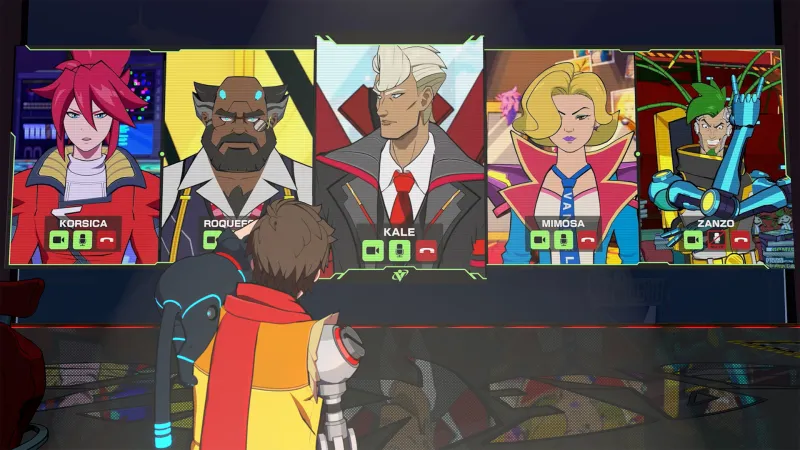
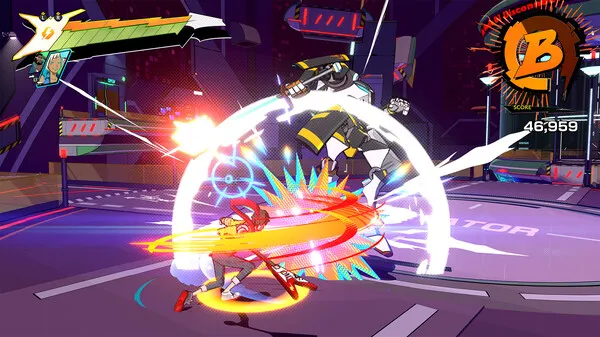
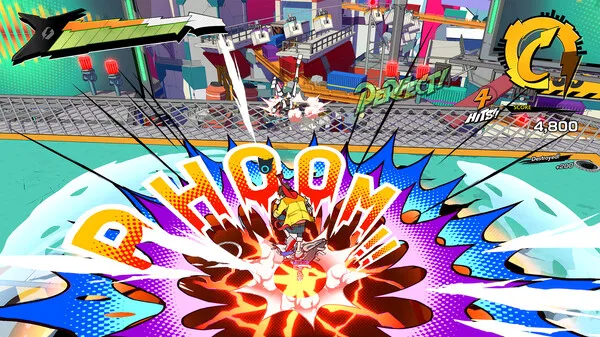
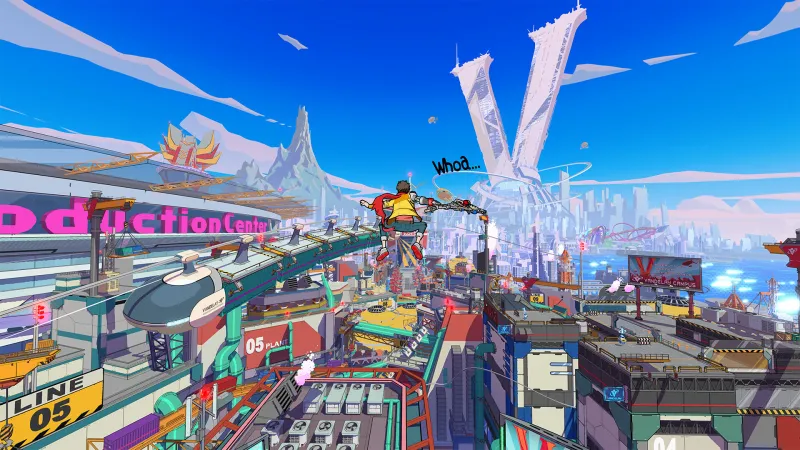
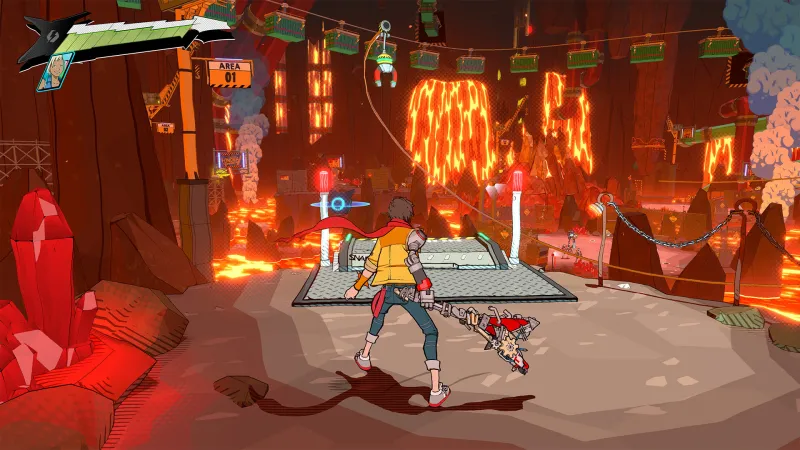
No comments:
Post a Comment